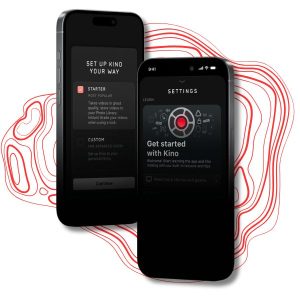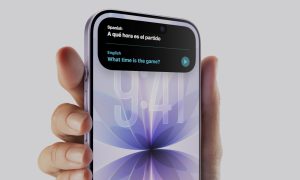How technology-enabled ‘selves-improvement’ will drive the future of personal productivity

Scheduling a meeting with a colleague? Siri can do that. Booking a business trip from New York to San Francisco? Google’s mobile app delivers. Seeking traffic updates for your morning commute? Alexa and Cortana are acoustically at your service.
Digital assistants and bots undeniably enhance our work lives in myriad ways. They’re terrific; your wish is their command. And they literally acquire more “skills” every day. But are better bots and smarter software servants truly the best way to drive people’s personal productivity?
My research suggests the answer is no. Instead of simply surrounding knowledge workers with ever-better digital assistants and bots, organizations and their workers will get greater returns investing in “selves improvement.” That is, providing digital tools, techniques and technologies that empower employees to craft high-performance versions of themselves — “selves” that are smarter, bolder, more creative, more persuasive and/or more empathic than one’s “typical” or “average” self.
Call it “selvesware.” Similar to recommendation engines for books to read or movies to watch, selvesware delivers actionable, data-driven insights and advice on what to say, when to speak up and with whom to work, and suggests options to create, communicate and collaborate. It invites workers to digitally amplify their best attributes, while monitoring and minimizing their workplace weakness. In this future, the AI revolution is less about “artificial intelligence” and more about “augmenting introspection.”
Consider the Type A, get-it-done-now! executive whose 360-degree performance reviews confirm a counterproductively brusque and alienating communication style. To mitigate this flaw, his selvesware recommends a more sensitive persona. His missives and messages are previewed with software like IBM Watson’s Tone Analyzer, which suggests tonal and textual revisions that soften his prose and inject a dose of compassion. He sees how his empathic “self” can better connect with his colleagues. The result: a more empathetic manager who no longer demotivates his team.
Similarly, the technically competent but aesthetically limited user-interface designer needs a digital self that safely challenges his creative boundaries. He runs his designs through a “visual recommendation engine” that suggests bolder, more energetic styles based on his sketches and use cases. The outcome: more creative prototypes and more engaged clients.
What about the global project manager hoping to foster greater cooperation and camaraderie within her team? Her bespoke selvesware engine performs social-network analytics, prioritizes project milestones and sends post-meeting communiqués in ways that utterly transform her “normal” or “typical” managerial style. The result: a more productive and cohesive team that hits all its deadlines.
In this future, the AI revolution is less about “artificial intelligence” and more about “augmenting introspection.”
Widespread adoption of wearable devices and sensors also promises to boost workplace awareness and productivity. Just as they do today for physical fitness, technologies tracking our steps and heart rates already capture actionable conclusions about our individual energy levels and moods. Jawbone, Fitbit and other mobile apps can easily play important roles assessing mental acuity and attention. The global workday is near when wristband monitors and personal dashboards will physiologically sense when people are not in the mood to take advice or concentrate on details.
Paranoid readers may rightly fear a dystopian office where authoritarian algorithms dictate how their humans behave. And yet this “meat puppet” future seems as improbable as it is undesirable. The more likely outcome is better options and better choices for workers who want to improve their performance. True, this requires a combination of self-awareness and discipline. But “selves improvement” is inevitable in an era when machine intelligence and capabilities increasingly competes with human talent. Why shouldn’t technology augment as well as automate?
The technical ingredients needed to create custom multiple selves already exist. To my mind, they feel like pieces in a puzzle that no one has bothered to put together. Companies like Google, Facebook, Amazon and Netflix, with their digital sophistication, algorithmic bona fides and commitment to quality human capital, seem supremely well-positioned to lead a selvesware revolution. The opportunity to make more people more valuable worldwide is a market opportunity that could and should prove bigger than bots.
Technology that allows us to augment, automate and network our most successful selves is not the stuff of science fiction; it is a guarantor of a more productive — and more human — future. Let’s have the creativity and courage to evolve from “Know Thyself” to “Know Thyselves.”
Siri, Alexa, Cortana: It’s your move.











